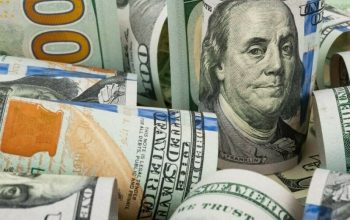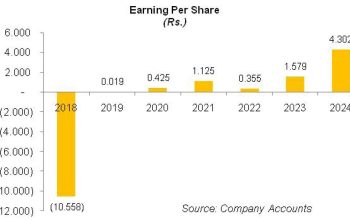Pakistan has paid off a $1 billion Chinese commercial loan, as the government on Tuesday held the first high-level virtual meeting with the International Monetary Fund (IMF) in its final attempt to receive a $1.2 billion tranche.
The $1 billion payment to China was made on Monday, which again pushed the gross official currency reserves below $3 billion.
The first virtual contact between Finance Minister Ishaq Dar and IMF Mission Chief Nathan Porter was established after the presentation of the budget five days ago.
Sources in the finance ministry said no major breakthrough could be achieved in the first virtual contact and another round of meetings would now be held to address the IMF concerns.
The sources added that the IMF raised questions about the viability of the budget numbers, particularly the non-tax revenues. It also raised questions about the tax collection target of the Federal Board of Revenue (FBR).
There were also queries about the reality of the Rs7.3 trillion allocation for the interest payments in the next fiscal year.
The IMF team also raised questions about power subsidies. The global lender would hold a meeting with the Power Division, the sources added. The IMF team would also hold a separate meeting with the FBR.
Soon after the meeting with the IMF, Dar did not comment on the question about its outcome and left the venue.
Only 17 days are left until the expiry of the IMF extended programme and the government has now made the last attempt to receive $1.2 billion out of remaining $2.6 billion loans.
The total size of the programme is $6.5 billion and $3.9 billion has already been disbursed.
A participant of the virtual huddle hoped that the IMF might agree to give $1.2 billion tranche, provided the FBR, Budget Wing of the finance ministry, and Power Division were able to convince the global lender to disburse the amount in the follow up meetings.
The sources in the State Bank of Pakistan (SBP) and finance ministry told The Express Tribune that the country paid a $1 billion loan of the China Development Bank (CDB) on Monday.
They said the loan was due around June 29.
However, Islamabad decided to make the payment in advance to receive the money back within this fiscal year that was ending on June 30.
The repayment has also been made amid the government’s efforts to arrange the foreign currency from all available sources.
As part of these attempts, it has also offered an amnesty from the disclosure of source of income on bringing up to $100,000 in foreign remittance.
However, a top official of the country’s equity market and companies’ regulator has cautioned that the amnesty has increased the money laundering risks.
The sources said after the repayment, the country’s gross official foreign currency reserves have slipped below the $3 billion level for the first time since February 3.
The SBP and finance ministry have not officially commented on the story despite repeated attempts.
A day earlier, the finance minister met with the charge d’ affairs of the Chinese embassy and requested her to fast-track the refinancing of maturing commercial loans of $1.3 billion.
Dar had also informed the Chinese diplomat about the diminishing prospects of the revival of the IMF loan programme.
The Chinese authorities have already assured Pakistan that they would refund both the loans but Islamabad wanted the money to be re-lent as soon as it is paid back, according to the sources.
Pakistan is also scheduled to make a debt repayment of $300 million to the Bank of China in less than two weeks.
On Saturday, Dar said the country was also planning to get external bilateral debt restructuring.
However, SBP Governor Jameel Ahmad on Monday said there were no intentions for debt restructuring at present, whether it pertained to external or domestic.
The SBP governor added that the total external debt payable in June was $3.6 billion out of which $400 million had been repaid.
Of the remaining balance of $3.2 billion, $2.3 billion will be rolled over by China.
The SBP governor said the net $900 million would be paid in June after adjusting the rollover and refinancing of these loans.
The sources said that the government was hoping that China would refinance the loan within a few days aimed at helping Pakistan to keep its official foreign exchange reserves around $3 billion by June 30.
Amnesty scheme
The Senate Standing Committee on Finance on Tuesday endorsed the $100,000 amnesty on bringing in foreign remittance despite serious reservations raised by the commissioner of the Securities and Exchange Commission of Pakistan (SECP).
Headed by Senator Saleem Mandviwalla, the committee endorsed the amendment in Section 111 (4) that increased the question-free remittance limit from “five million rupees” to “rupee equivalent of one hundred thousand United States dollars”.
At the current exchange rate, about Rs30 million could be whitened.
“There are concerns of money laundering because of amendments proposed to Section 111 (4),” said SECP Commissioner Abdul Rehman Warriach.
When the committee members maintained that the foreign jurisdiction would be responsible to ask the source of income, Warriach, who was also a former taxman, said Section 111 (4) is related to a Pakistani bank account holder.
The government has proposed in the budget that it would not ask the source of income on up to $100,000 foreign remittance.
The proposal is being pushed as part of efforts to get foreign currency from wherever possible after the government struggled in reviving the IMF programme.
“The FBR cannot ask a question about the source of income of $100,000 or whether or not any tax has been paid on this amount,” Warriach explained.
To stop Warriach from further commenting on the issue, the FBR officials present in the room immediately sent chief sales tax Amir Bhatti, who pressed the SECP commissioner's shoulder and requested him not to speak any further.
Minister of State for Finance Dr Aisha Pasha said Pakistan could not give the amnesty during the programme period.
Senator Sadia Abbasi also objected to the use of the word “unexplained income” in the law, saying that it gave a negative connotation to the whole issue.
Read the full story at the express tribune website.


